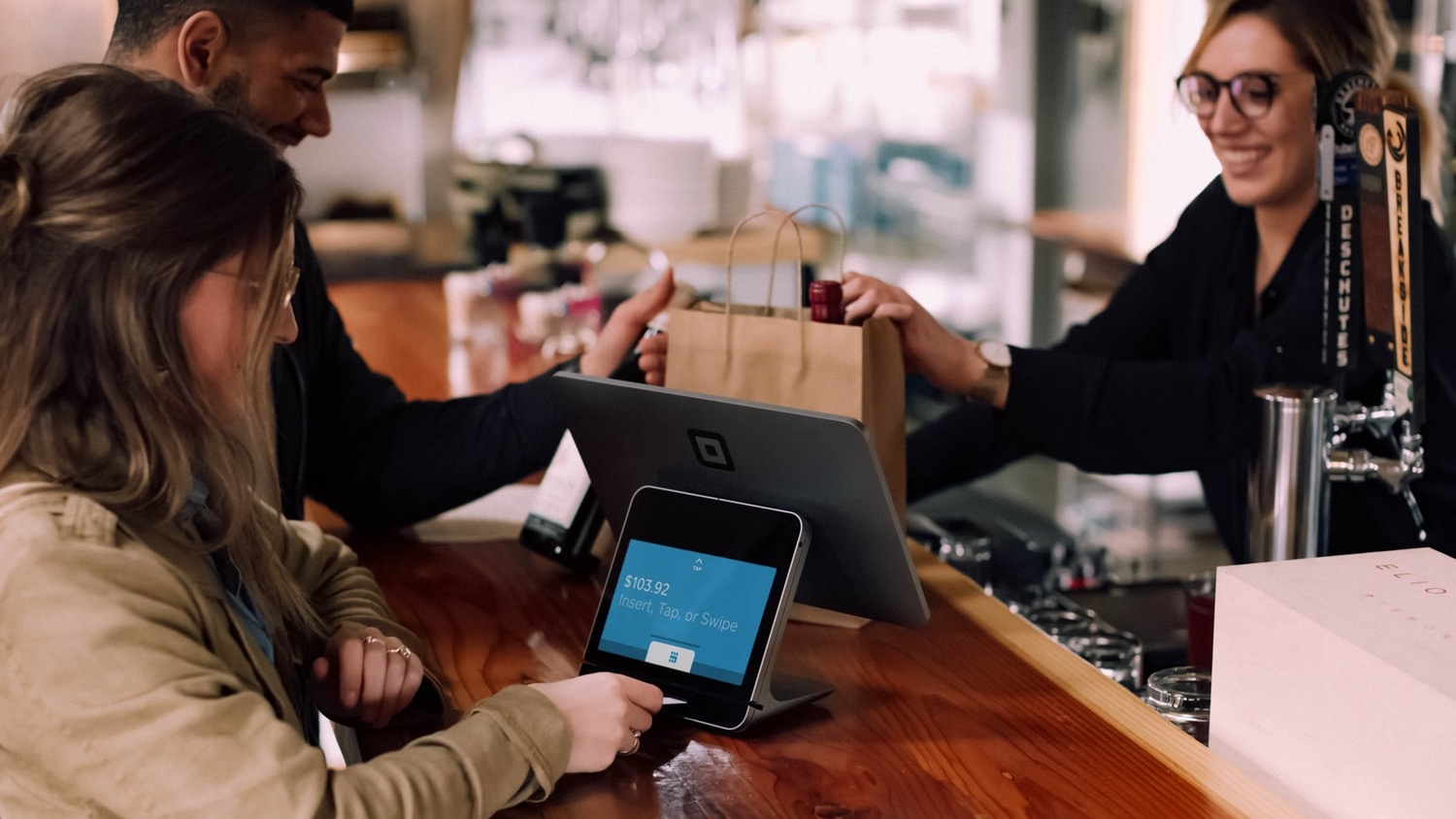Modern technology has improved countless businesses processes. Companies are more connected, effective, and efficient than ever.
But a few business staples have gone mostly unnoticed - despite being riddled with flaws. Most notably for this article: company credit cards.
These have become so ingrained worldwide that most business leaders just assume they're working; that there's no room for improvement.
But there is, and a superior alternative is already available: business expense cards. In this article, we'll explore what makes these different, and why they're almost certainly a better bet for your business.
What are corporate expense cards?
Don’t panic if you haven’t heard of these before. We’ve spent decades relying on traditional credit cards, to the point where anything else seems inconceivable.
But expense cards are perhaps the best spend management tool you can have.
Corporate expense cards are prepaid, debit, or occasionally credit cards for business expenses that give companies new levels of control over spending. Instead of sharing them, each employee has their own, and every payment is linked to that individual and the appropriate team budget.
The overall idea is to give team members access to the funds they need, while also keeping finance teams and management in complete control.
A few key characteristics:
Unique limits on each card which can be set and updated by managers and finance teams.
Links to a central tool or platform, so top-ups can be made quickly and all data can be viewed from anyway.
An easy method to store receipts - usually by taking a photo through a mobile app.
There are countless nuances to these cards and lots of great reasons to use them (as we'll see next). But the most important difference is simply that, whereas the company card gets shared around, lost, and is easily mismanaged, purchasing cards (or expense cards) each have one owner, and can be customised to suit your needs.
What are the benefits of expense cards?
Most finance professionals will immediately recognize why this new technology is so exciting. But in the interest of clarity, here’s why you should be enthusiastic.
1. Easy access to company funds
The whole point of using any kind of company card is to be able to spend when the time comes. But the classic credit card is usually reserved for the chosen few - the CEO, a few executives, and maybe the office manager.
Everyone else has to beg for and borrow the card when they need to buy.
Expense cards are different because everyone can have their own. This removes the angst and confusion over who actually has the card at any given moment, and frees employees to be their most productive selves.
It’s also more secure, because you always know exactly who made which payment, when, and why.
And if you’re worried that spending will immediately go through the roof, the next point is for you.
2. Clear limits on expenses

Every employee is part of a designated team with its own budget, manager, and set amounts of pre-approved spending. You could choose to require approval for all spending, or just when an employee wants to exceed a set limit.
For example, every employee here at Spendesk their own company card. We can make purchases up to a set amount per month without approval. Of course, we still have to provide a receipt and give a reason for each payment, and the finance team can block all the cards at any moment.
Managers have a slightly higher set amount (they buy supplies for their teams and hold a lot more out-of-office meetings), and there are separate team budgets on top of this too.
The idea is that Spendesk employees should be trusted to make smart decisions, and making formal requests for every little expense just creates tedious admin.
The exception to this set amount is for travellers. Obviously, if you’re regularly away from the office, you’ll likely need a little more. So your manager can raise your pre-approved amount to match your per diem, for instance.
Which mercifully spells the end of one of the worst processes in the business world...
3. No need for expense reports
We’ve already touched on the frustrations that come with company credit cards. But perhaps even worse are the headaches for those who don’t have access to them in the first place.
When traveling, employees worldwide are forced to spend their own money and then wait for reimbursement. This usually comes through the expense report process, an addiction that most businesses haven’t found a way to quit.
As we’ve written again and again, expense reports don’t work for anyone. Employees hate them, they create enormous amounts of admin, and they tend to lead to hidden costs for the company.
So by giving team members access to funds from the start, you can completely eliminate expense claims altogether.
4. Real-time data for finance teams
Another great downfall of both expense reports and company credit cards is their lack of transparency. With expense claims, finance teams often don’t know how much has been spent a month or more after the fact.
And company cards aren’t much better. Even if you closely monitor credit statements, pending and recurring payments can be processed later, when you’re least expecting them. As a result, it’s incredibly difficult to keep on top of budgets.
Corporate expense cards log every payment the moment you make it. (Plus the managerial approval and proof of purchase.) So a financial controller can log in and see all company spending at any time, broken down by team, expense category, and more.
You don’t have to spend hours reconciling payments just to have clean data - it’s all there whenever you need it.
Are they the best credit cards for business expenses?
Having seen the major benefits of business expense cards, we still need to set out what makes these different from the company credit cards you put up with today.

It’s really a question of the future vs the status quo.
Status quo - the company credit card
Since we’ve explored all the exciting benefits of corporate expense cards above, it’s pretty safe to assume that company cards offer none of these same upsides. The company card is basically just a copy of our personal credit cards, but in the name of the business (or CEO). As a result, it lacks many of the things that companies actually need.
Here’s the typical situation:
The company has 3-5 cards. The CEO has one, the office manager has another, and a few other managers or team leaders do too.
Whenever anyone else needs to pay for something (either in-person or online), they have to come to one of these people and ask. This seems good in theory, but it’s actually a barrier to efficiency. If key people are away, nobody can pay.
After a payment takes place, the spender needs to remember to send a receipt to the office manager or finance team. They may even just hand one over in person. The finance team should also note down who paid and why, and who authorized the payment. All of this is done manually.
With new 3DS security, an SMS is sent to someone to approve a payment. Again, if that SMS goes to a manager on vacation or out of the office that day, nobody can pay.
Overall, this is a process that gives the illusion of control. If I’m the keeper of the cards, I can make sure that nobody inappropriate touches them.
But in practice, managers and CEOs are too busy to control payments properly. More likely, they just hand over the card, trusting that everything will go smoothly. And while your employees probably can be trusted, this doesn’t mean they understand the company expense policy and will do the right thing.
More importantly, unless managers keep diligent records of every payment they approve, things are going to slip through and get lost in the mess. It’s basically guaranteed.
The modern solution - expense cards
This is the exact sticking point that expense cards were built to fix. Rather than sharing two or three company cards around the office, you can give every employee their own card.
Here’s what makes these cards different:
They’re not connected to the company bank account. Instead, you load money onto a central platform that all your cards draw from.
Every card has its own limit. This can be set (and changed anytime) by whoever controls the platform - managers, a finance leader, or the CEO.
Each card belongs to a person or team. There’s never a question of who spent what, unlike with the company card. You know who made a purchase, and they can even record why they bought something when they make a payment.
Approvals are built in. Some team members aren’t allowed to spend a cent without approval. Others, like managers, may have some freedom. Prepaid cards let you set these rules for each individual card. And when approval is given, it’s recorded in the platform in real time.
Receipts are stored easily. The best time to save a receipt is the second that the payment is made. Good prepaid cards come with a smartphone app that lets your team members take a photo of their receipt and save it next to the payment they just made. So expense reconciliation is basically done for you.
Business expense cards are designed to tackle all the biggest issues with company cards: security, trackability, and convenience. For a busy office manager, this can be just the change you need.
Empower team members and free yourself up
The whole point of this technology is to let other employees handle the payments that affect them. If they need a new mouse or computer screen, or if someone’s planning a special lunch for a client, you don’t have to be a part of it.
Staff have the tools they need to pay safely and securely, and every purchase is recorded the moment they make it.
It’s a more flexible system, but it’s safer too.
You end up juggling fewer tasks, and you don’t have to be responsible for every little thing that happens in the office. Other managers can take over without needing new skills.
That’s the kind of balance that lets office managers, managers, and CFOs run high-functioning workplaces full of happy campers.
Curious how Spendesk works?
Try an interactive demo to see spend control and approvals end-to-end.
Get a free tour


)
)
)
)
)